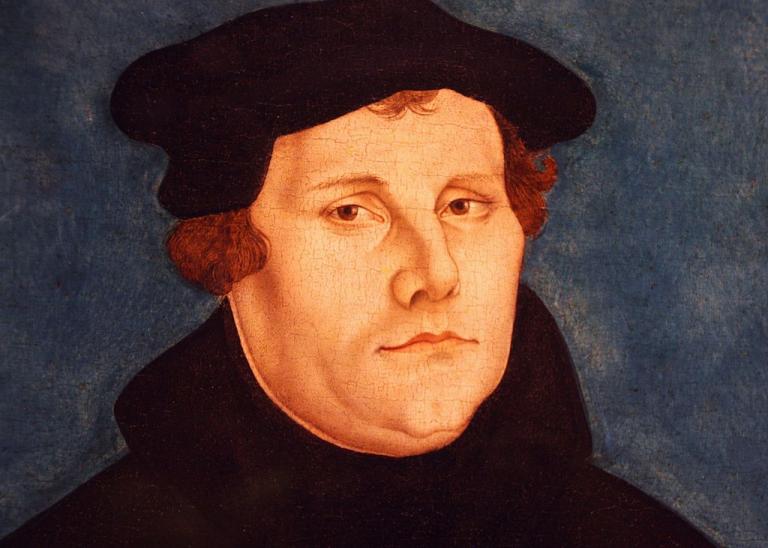Our “liberal” system of government (from the Latin word for “free,” not in the sense of the political left) has given us freedom, individual rights, democracy, and free market capitalism. It has also, arguably, promoted individual autonomy, broken up social institutions such as communities and families, and created a climate of moral relativism and religious indifference.
As we’ve blogged about, both the left and the right are having second thoughts about liberal democracy. Prominent conservative thinkers such as Patrick Deneen, author of Why Liberalism Failed, are questioning the whole enterprise. The controversy looms behind the debates, such as that between Sohrab Amari and David French, of whether conservatives should prioritize freedom or the common good.
Roman Catholics are delving into the religious side of these issues. Some conservative Catholics are strongly pro-American (the USA being the quintessential liberal nation) and are defending liberty and capitalism. Others, though, are arguing that liberalism, including religious liberty, is incompatible with Catholicism and with Christianity as a whole, looking instead to apply the ideology of “integralism,” in which all of life, including the government, is integrated under the temporal rule of the Pope.
So where does Lutheranism come down in all of this? Is liberalism compatible with Lutheranism? Many scholars on both sides of the issue say that Luther with the Reformation he initiated was one of the causes of the rise of liberalism, with some praising that contribution and others blaming him for it.
Two recent articles take up the question. The latest Concordia Theological Quarterly includes an article by Hillsdale history professor Korey D. Maas entitled Luther and Liberalism: A Tale of Two Tales (Or, A Lutheran Showdown Worth Having). Texas A&M political scientist James R. Rogers interacts with that article in a Law & Liberty piece entitled Luther and Liberalism. Both scholars, by the way, are members of the Lutheran Church Missouri Synod.
Prof. Maas points out that there are four possibilities, and a substantial amount of scholarship has been written to support each of the first three positions:
1. Luther was a proto-liberal, and that’s a good thing.
2. Luther was a proto-liberal, and that’s a bad thing.
3. Luther was not a proto-liberal, and that’s a bad thing.
4. Luther was not a proto-liberal, and that’s a good thing.
The fourth also holds some possibilities, though it has not been developed to the extent that the others have been. That Luther’s influence has been found in all of these incompatible positions suggests that his thought is very strange or perhaps very complex. Let’s go through each of them.
1. Luther was a proto-liberal, and that’s a good thing.
This was the dominant view for the past several centuries. In fact, Prof. Maas shows that Luther’s political writings do anticipate those of John Locke, no less, the so-called “Father of Liberalism.” Says Prof. Maas of Luther,
When [Luther] does “clearly describe” temporal government, he regularly does so in what can sound astonishingly like Lockean terms. To note only some of the most obvious examples: As Locke will do in his Second Treatise of Government, Luther would insist that “temporal government has laws which extend no further than to life and property and external affairs.” Therefore, as Locke would do in his published A Letter concerning Toleration, Luther counseled that temporal authorities should “let men believe this or that as they are able and willing,” in part because, just as Locke would argue, it is “impossible to command or compel anyone by force to believe.” Finally, and despite his early and firm rejection of any right of resistance, Luther, like Locke, would eventually acknowledge and advocate a right to resist even duly elected authorities. In this light, it is perhaps not surprising that contemporary scholars regularly conclude that it is “largely right to argue for a connection between Protestant theology and the emergence of political liberalism.”
2. Luther was a proto-liberal, and that’s a bad thing.
Opponents of Liberalism, though, have blamed Luther for his influence. Part of the Catholic polemic against Luther has always been that he started his own church and thus destroyed Christendom (never mind that he was excommunicated against his will) and that his gospel of free forgiveness undermined morality (never mind his crusade against the moral corruption of the medieval church). But lately such charges have been revived by critics of modernity. The Radical Orthodox blame Luther for the dominance of nominalism, which is said to have born fruit in scientism and materialism. Brad Gregory’s The Unintended Reformation: How a Religious Revolution Secularized Society blames Luther and the Reformation for “a hyperpluralism of divergent secular and religious truth claims[,] . . . individuals pursuing their desires whatever they happen to be[,] . . . Highly bureaucratized sovereign states wield[ing] a monopoly of public power[,] . . . The hegemonic cultural glue [. . . of . . .] all-pervasive capitalism and consumerism. . . . There is no shared, substantive common good, nor are there any realistic prospects for devising one” (p. 377).
3. Luther was not a proto-liberal, and that’s a bad thing.
At the very same time that Luther is being both praised and blamed for his liberalism, he has been accused of giving us Hitler’s Germany. This is the “Shirer thesis,” named for the American journalist William Shirer who developed this idea in his popular study The Rise and Fall of the Third Reich. This is the Luther who called for the suppression of the Peasant Revolt and who wrote On the Jews and Their Lies.
When Luther advocated the violent persecution of Jews, he was obviously contradicting his Lockean writings on religious toleration and liberty, as well as his earlier defense of Jews in That Jesus Christ Was Born a Jew. Luther clearly did not always uphold his own stated beliefs, but that personal failure does not invalidate them. (See Uwe Siemon-Netto, The Fabricated Luther for a critical examination of the Shirer thesis.)
But there was certainly a “conservative,” non-liberal side to Luther. He tended to advocate radical submission to the temporal authorities (except as Maas indicates, above); he supported the medieval economic order, including the repudiation of charging interest for loans; he supported the medieval social order, with their sense of community and division of labor. He retained the sacramentalism, the liturgy, the calendar, the creeds, and customs of the historic church.
4. Luther was not a proto-liberal, and that’s a good thing.
Again, Maas says this dimension of Luther is not so developed, but he suggests that it could be. And Prof. Rogers comes close to this view in making the case that nearly everything in Luther’s theology and social writing has its origins in medieval thought and social movements. Luther, he says, is very much a man of his times. He may have been a catalyst, but only because his teachings struck such a chord with people already oriented to them. He was not “original,” nor would he have wanted to be. As such, he was not “modern,” nor could he have been truly “liberal.”
Luther being praised and criticized both for being liberal and for being conservative is reminiscent of what G. K. Chesterton says about Christianity being attacked from all angles for contradictory reasons. “Suppose we heard an unknown man spoken of by many men. Suppose we were puzzled to hear that some men said he was too tall and some too short; some objected to his fatness, some lamented his leanness; some thought him too dark, and some too fair. One explanation (as has been already admitted) would be that he might be an odd shape. But there is another explanation. He might be the right shape” (Orthodoxy, Chapter 6).
Perhaps Luther can show us a way to keep what is good about the past, while “reforming” it to allow for freedom and the other good things of modern life. Maybe he can show us a way towards liberal conservatism, or conservative liberalism.
Illustration: Portrait of Luther, workshop of Lucas Cranach the Elder [Public domain] via Wikimedia Commons














